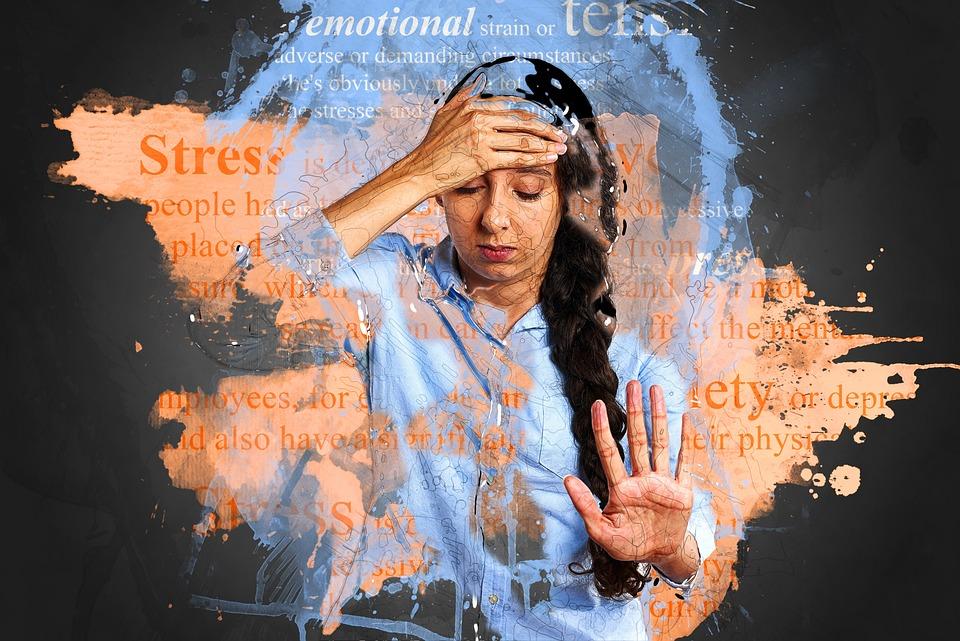Unlock Your Potential: Overcome Fear and Believe in Yourself
People have their own potential, skills, and talent, but there is one thing that prevents them from revealing their inner genius and potential: fear. Fear can occur for a variety of causes, including a lack of confidence, a loss of hope, and so on.
Their past experience may be one of the factors that cause people to feel insecure, discouraged, and depressed, and if they remain in this situation, their fear will grow, and their potential will unavoidably run away from them, causing them to become depressed.
Overcoming fear and believing in yourself are essential for unlocking your full potential. Fear can prevent you from taking risks, making decisions, and trying new things. It is important to understand that fear is a natural part of life, and it can actually be used as an advantage if it is managed correctly.
You have the power to take charge of your life and overcome any fears that are holding you back. Start by identifying what areas of your life scare you the most and figure out why they make you feel scared. Once you identify the root cause, create strategies to reduce those feelings. To help make the transition easier begin with small steps that focus on building confidence in yourself. Make sure to also practice positive self-talk which will help instill a sense of belief in yourself so that you can take on more challenging tasks moving forward.
In this article, I will explore the power of overcoming fear and believing in yourself. We will look at how we can channel these positive forces to increase self-confidence, improve our relationships, and gain success in all areas of life.
Fear & Potential
What is fear? Fear is a natural emotion that can be paralyzing and hold us back from reaching our full potential. Fear is an emotion triggered by the perception of a potential threat. It is a reaction to a perceived threat that is triggered by cognitive processes such as anticipation, imagination, and assessment of the severity of the threat. Fear is often accompanied by physiological and behavioral responses such as sweating, increased heart rate, and muscular tension. Fear is thought to have evolved as an adaptive response to threatening environmental stimuli in early humans, allowing them to better anticipate and respond to dangers in their environment.
Why are people fear? When people’s belief systems are challenged or contradicted, they frequently experience fear as a result of an underlying cognitive dissonance. This dissonance can result from a person’s perceived lack of control over their surroundings, which can cause anxiety and trepidation. The brain may initiate a “fight or flight” reflex in response to this sensation, resulting in increased physiological arousal and a sense of vulnerability.
In the context of human behavior, two psychological concepts intersect: fear and potential. Fear can sometimes be viewed as a facilitator of potential, encouraging people to push themselves beyond their comfort zones. On the other hand, fear can be a deterrent to potential because it can inhibit risk-taking behaviors necessary for growth and development.
Define and Understand Fear
We all experience the natural human emotion of fear at various points in our lives. Both public speaking anxiety and a fear of heights are examples of this. If so, then what gives rise to this feeling? Is it innate, or does it grow with the person? If we can identify the origins of fear, we can work to alleviate it more effectively when it arises.
Fear can be caused by biological, psychological, social, or environmental factors. All of these factors necessitate distinct approaches. People may experience various levels of fear. Some people may be scared because of their social situation. When they do something wrong, for example, they are frequently blamed or stigmatized by their surrounding communities. And they think they are wrong, so they isolate themselves from the crowd. Some people are afraid when they lack experience in speaking in front of many people on the stage. They always forget what they were going to say on stage.
Therefore, understanding the fundamental factors that contribute to fear can assist individuals in determining how they can most effectively address their fear.
Overcome Fear
Fear arises from different seasons so eliminating it is not easy, but there is still a way to deal with it.
Overcoming fear cannot be done in just one or two days but take time. Some people have feared since they were born and since they have experienced something in their lives that made them frightened and considered the fear as their biggest issue. If we just keep the fear as our big issue and never find a resolution to it, it will prolong, and expand bigger and bigger day by day. And at the end, it will lead us to depression and hopelessness, and isolate us from the outside world.
There are various books on the market that can help you understand your fear and anxiety and find the best answer to your fear. These are the top ten books available right now.
Develop Self-Belief
Self-belief, or self-confidence, is an essential part of life. It can often be a challenge to overcome fear and build self-confidence, but it is something that can be learned and developed.
Having self-belief is an essential part of life and can be difficult to achieve without the proper tools. Self-confidence helps us to overcome fear, take risks and ultimately live our best lives. Here are some helpful tips on how to develop self-belief:
First, set realistic goals for yourself. When we focus on what’s achievable, it can help build confidence in our ability to reach those goals. It’s also important to recognize your own strengths and weaknesses; this will help you understand what areas need improvement and give you a greater sense of accomplishment when you make progress toward achieving your goals.
Second, surround yourself with positive people who will encourage and support you in reaching your ambitions. Positive reinforcement from others can be incredibly influential in developing self-belief because it gives us the confidence that we have someone else’s trust in our abilities.
Take Action
Taking action is a key step to achieving goals and making progress. Implementing plans and putting ideas into practice — these are the things that will get a task done. People often have grand visions for projects or activities but without taking action, these dreams remain just that — dreams.
It’s not easy to take action on something; it requires focus and dedication. It can be difficult to begin at times, especially when it’s a big project or long-term goal with multiple steps involved. That is why breaking down the process into manageable tasks is important in order to remain motivated throughout the implementation of the plan and avoid getting overwhelmed by the entire process.
Once a plan has been put into motion, stick with it until completion! Even if there are setbacks along the way, don’t give up!
Empower yourself
The power to unlock one’s potential is possible for everyone, but it takes a clear plan and taking action to get there. It is essential to have hope in order to empower oneself. Positive thinking and self-encouragement can help you feel motivated, energized, and ready to take on the world.
Making a plan of action toward achieving one’s goals will make it easier for one to reach their full potential. Having a plan of attack that identifies any obstacles one may face along the way will increase their chances of success. Taking small steps each day towards this goal will create momentum and eventually lead to bigger outcomes. The best part about having an effective plan is that it helps keep the focus on what matters most.
Having confidence in yourself and your talent is key when looking into ways of empowering oneself.



 Previous Post
Previous Post Next Post
Next Post